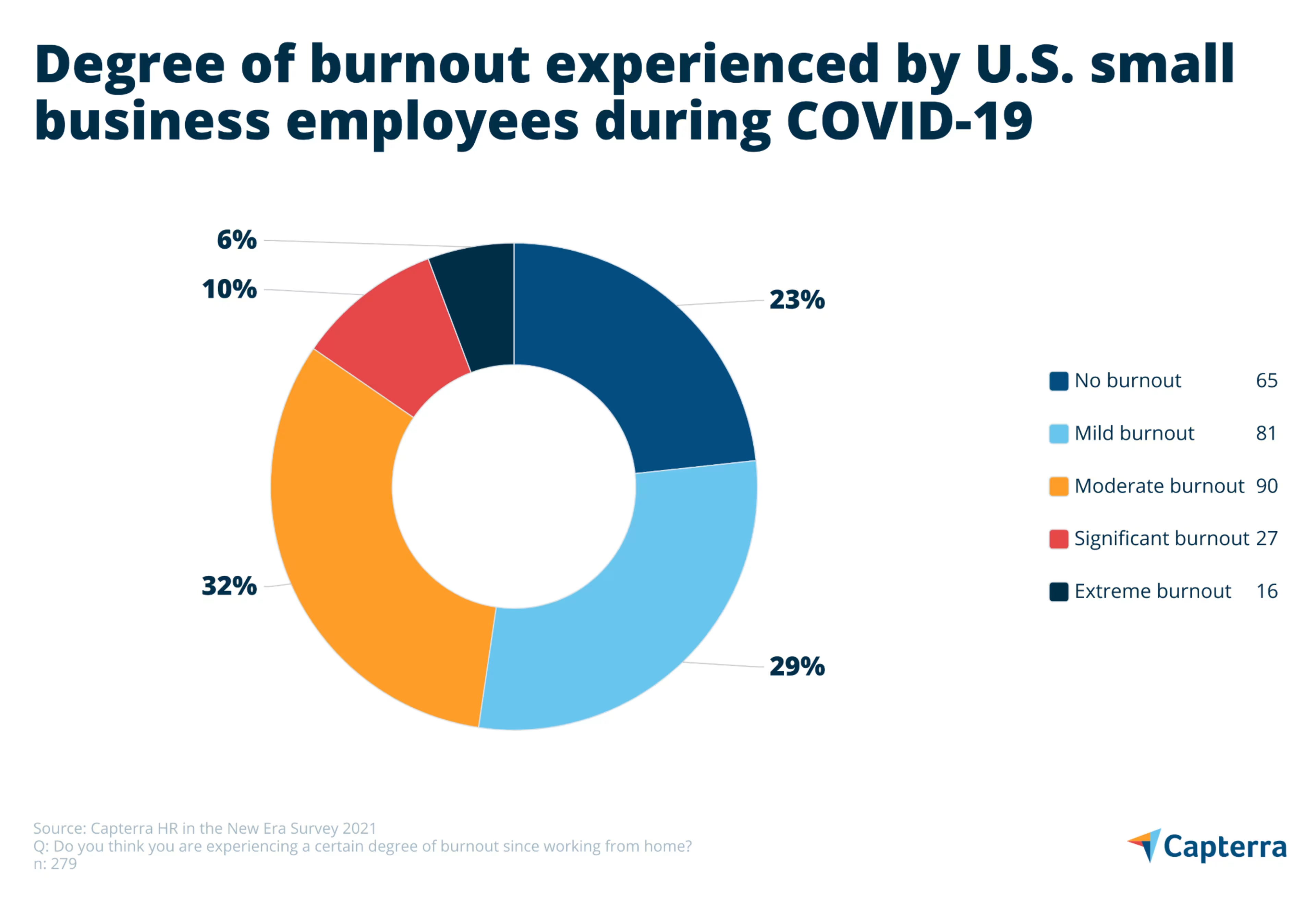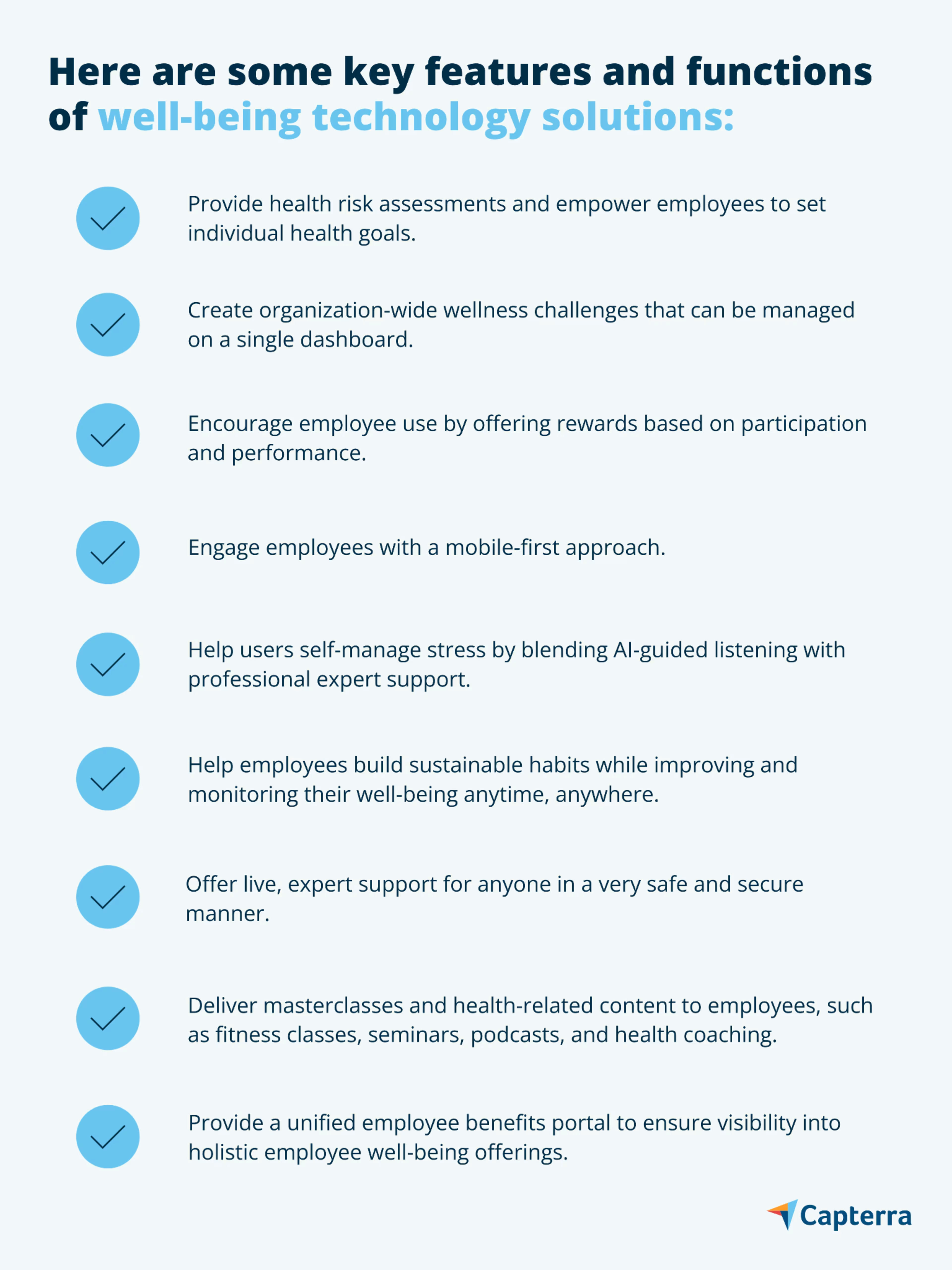Find out how you can leverage technology for the well-being of your employees.
It took a pandemic for employers and employees to start to realize the importance of workplace health and well-being. While COVID-19 has led to a transformation in health and safety practices, it’s still a long journey ahead if we want to avoid the next "pandemic of mental health” that an ISGlobal study warns about.
Remote work, social isolation, and a blurred work-life balance have placed large amounts of stress on employees. It’s not surprising that ISGlobal raises serious concerns about an unprecedented global crisis stemming from mental health issues.
That’s why businesses have been urged to put in measures leveraging new-age wellness technology solutions to support employee well-being and prevent the rise of mental health issues in the workplace. Read on to find out why your business should implement tech-enabled mental wellness tools.
What the numbers say
Though businesses can’t afford to overlook employee mental health issues, unfortunately, most fail to implement effective measures. Employee burnout is not a personal problem; it’s a workplace problem. According to a The People Source survey, 51% of employees work until late evening, 29% work on weekends, 84% work through the lunch hour, and 33% work a 50+ hour week.
According to Capterra’s HR in the New Era survey* conducted in January 2021, 77% of small-business employees in the U.S. who are working from home due to COVID-19 have experienced at least some burnout. For Gen-Z workers ages 18 to 25, that number skyrockets to 92%.

Employees feel that increasing workloads and extended work hours leave little to no time for themselves. This ultimately leads to high stress levels that can lead to mental health issues. Though 56% of employees feel comfortable discussing mental health issues with their managers, only 47% believe that their organizational culture is open and accepting of these issues.
A pre-COVID Lancet Commission report found that the mental health crisis was expected to cost the global economy $16 trillion dollars by 2030. After the onset of the pandemic, this number is likely to balloon further.
These numbers are shouting just one thing— mental health awareness at workplaces is the need of the hour!
Challenges in supporting employee well-being and mental health
There are a lot of reasons why traditional well-being initiatives have not been successful in the workplace. Here are some of the challenges:
Lack of openness: Mental health is still often treated as a taboo issue. It has been historically stigmatized and this lack of openness can hold back employees who want to open up about their mental health issues. The fear of being judged convinces them to suffer in silence rather than talk about it.
Lack of expertise: The journey towards supporting mental health can be sensitive and needs to be handled with utmost compassion and empathy. Lack of relevant expertise in the workplace to develop and manage employee wellness programs has prevented businesses from getting the desired impact, despite effort and money invested.
Lack of training: Managers are directly and indirectly responsible for employee well-being. Training is the key to help them understand their role in contributing towards a healthy work environment. With training and assistance, managers can help their employees be in a safe mental space, which eventually translates into better workplace productivity and better business results.
Why your business needs technology-enabled mental wellness solutions
Traditionally, employers have not concerned themselves with employees’ mental health issues. However, there is enough research to back the claim that employee mental health can have a critical impact on company performance and revenue. The American Psychiatric Association states that employees with unresolved mental health issues show about 35% reduction in productivity.
A survey by Oracle found that 83% of employees want their organization to provide more mental well-being services that leverage technology. This has given HR teams a challenge and opportunity to improve their employee wellness programs, push aside managing wellness programs the traditional way, and invest in well-being technology solutions to create a substantial positive impact.
The increase in adoption of personal health tracking devices and mobile apps by individuals to monitor their individual health goals is proving to be a strong endorsement of the fact that employees are no strangers to using well-being-linked technology. In fact, they feel more comfortable using technology to aid their health goals. The survey by Oracle points out that “68% of people would prefer to talk to a robot over their manager about mental health at work, and 82% of people believe robots can support their mental health better than humans”.
Investing in mental well-being technology solutions not only generates tangible results, but a significant return on value (ROV) in terms of happier and satisfied employees. In fact, technology can help HR teams to derive the direct correlation between employee mental health and productivity. It becomes easier to take a data-driven approach towards employee well-being and ensures that effective measures are taken to combat mental health issues.
Here's what well-being technology solutions can do for your business
The common barriers, as discussed earlier, that are associated with seeking help for mental health issues are the stigma attached to mental health conversations and lack of expertise and training in the workplace. Technology can effectively overcome these barriers. With the advent of artificial intelligence (AI) and machine learning, well-being technology platforms have become cost-effective and deliver better ROI.
Most of these platforms and solutions deliver services in an anonymous and clinically safe fashion, around the clock.

If you're interested in learning about all the features and benefits of wellness technology software, check out Capterra's directory of corporate wellness software. You can read user reviews of the products, filter for particular features you need for your business, and compare products.
Benefits of employee well-being technology solutions
Here are some of the top advantages of leveraging technology for employee wellness and more specifically, for mental well-being:
Accessibility: Mental well-being technology tools are available in both online and offline models, making them easily accessible to employees in the time of their need.
Data insights: If you can’t measure it, you can’t improve it. Well-being technology aids employee wellness initiatives with data metrics. Insights into employees’ health risk assessment, eating habits, exercise and physical activities, happiness reviews, and detailed surveys on their work-life balance can help employees take necessary measures to ensure their well-being.
Awareness and training: Creating awareness to eradicate the stigma around mental health issues is the first step towards a positive emotional state. Wellness apps help employees seek help without the fear of any judgment. Some of the well-being technology solutions have features that can train and enable managers to create a safe working environment.
Collaboration and communication: Though they may be separated by geographical boundaries, remote colleagues can stay connected through well-being technology platforms. This aids improved communication and collaboration to create a happier and healthier work culture.
The final word
With workplaces increasingly adopting remote and hybrid work models, businesses need to leverage technology to offer digital support platforms to their employees.
At a time when traditional wellness programs are no longer the solution, as they are more reactive than proactive when it comes to tackling mental health issues, there is a clarion call for businesses to leverage technology to drive employee well-being initiatives. Let’s come together to avoid the next pandemic of mental health, and make a positive difference in our employees’ mental wellness, career growth, resilience, and self-efficacy.
Are you interested in becoming a guest writer for Capterra? Reach out to guestcontributors@gartner.com for details.
Gartner conducted this survey in January 2021 of 922 U.S. workers to learn more about their experience and preferences at work. Respondents were full- or part-time workers at U.S.-based businesses with 2-250 employees.